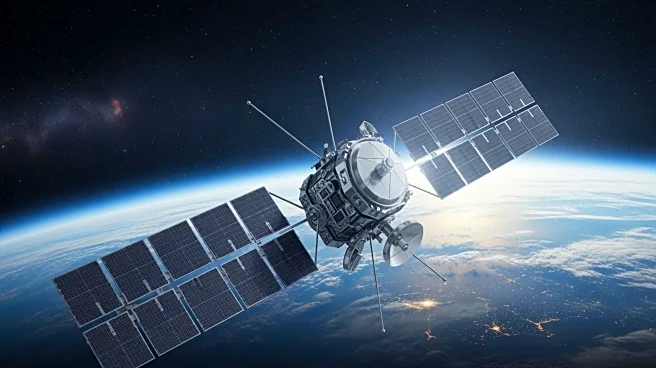What's Happening?
The Japanese Aerospace Exploration Agency (JAXA) has successfully launched three cubesats from the International Space Station's Kibo module. These compact satellites, named YOTSUBA-KULOVER, e-kagaku-1,
and BOTAN, are designed to study auroral activity and space weather. Developed by various Japanese institutions, the cubesats aim to enhance understanding of space phenomena, including volcanic pumice and solar activity. The launch is part of JAXA's efforts to broaden global access to space and promote scientific research through cost-effective satellite technology.
Why It's Important?
The deployment of these cubesats represents a significant advancement in space research, offering valuable insights into space weather and its impact on Earth. By utilizing affordable and efficient satellite technology, JAXA is democratizing access to space, enabling smaller organizations and educational institutions to participate in scientific exploration. The data collected by these satellites could improve predictions of space weather events, benefiting industries reliant on satellite communications and navigation systems.
What's Next?
The cubesats will continue to gather data on space weather phenomena, contributing to ongoing research and potentially informing future missions. JAXA may collaborate with international partners to expand the scope of its research and share findings with the global scientific community. The success of this launch could encourage further development of cubesat technology, leading to more innovative applications in space exploration.
Beyond the Headlines
The launch highlights the growing importance of international collaboration in space research and the role of technology in expanding scientific knowledge. It also underscores the potential for small-scale satellites to drive innovation and accessibility in the space industry, challenging traditional models of exploration.









